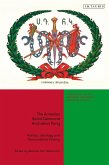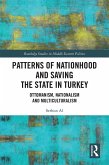Utah Series in Middle East StudiesOn July 15, 2016, a faction of the Turkish military attempted to overthrow the government of President Recep Tayyip Erdogan. The Turkish government blamed the unsuccessful coup attempt on Gulenists, adherents of an Islamist movement led by Fethullah Gulen. They had helped elect Erdogan and his AK Party, with the goal of bringing an ostensibly soft version of Islam into the secular Turkish government. In alliance with the AK Party, Gulenists steadfastly increased their representation in various government institutions, including the military, the police, and the judiciary. This volume focuses on the historical and sociopolitical contexts of the Gulen Movement s origins and political ascendancy along with its possible role in the failed coup. Editors Yavuz and Balci are among the first international scholars to have studied the movement from its nascent stages in Turkey. The volume's contributors include scholars who have researched the movement in Turkey, Central Asia, and the Balkans. The result is a comprehensive, timely assessment of numerous dimensions of Gulenist activities, including its social and political networks and the institutions that supported the movement as it became a major economic and educational force in Turkey and elsewhere. This volume reflects exchanges among scholars who having studied the Gulenists, assembled to discuss how and why the movement became belligerent opponents of Erdogan s government, and it addresses questions such as how this major, still continuing disruption in Turkey s politics will affect not only the future of the movement but also that of Turkey's embattled democracy as well.
Dieser Download kann aus rechtlichen Gründen nur mit Rechnungsadresse in A, B, BG, CY, CZ, D, DK, EW, E, FIN, F, GR, HR, H, IRL, I, LT, L, LR, M, NL, PL, P, R, S, SLO, SK ausgeliefert werden.









